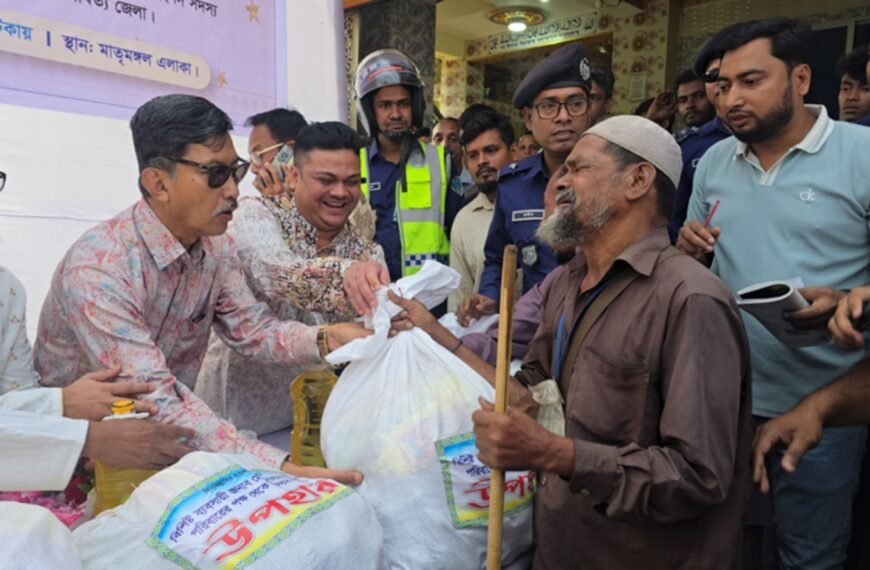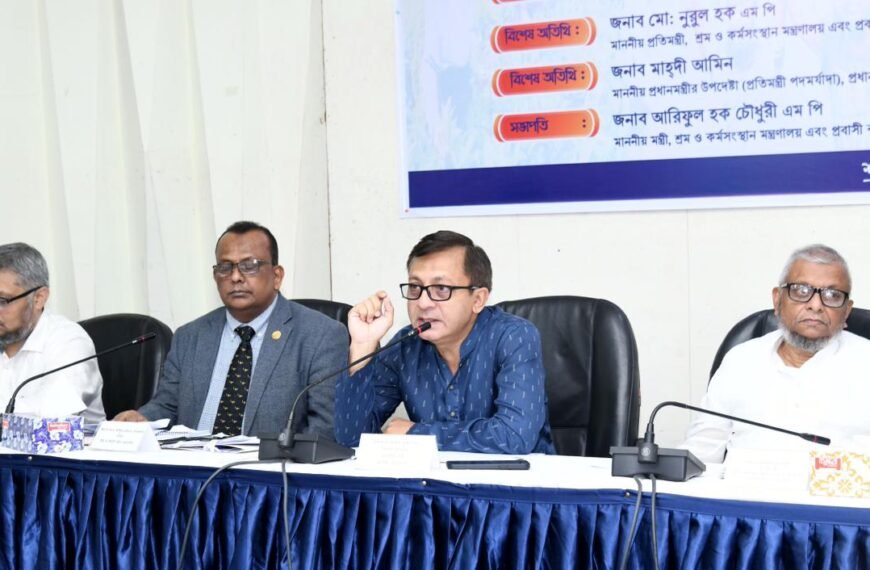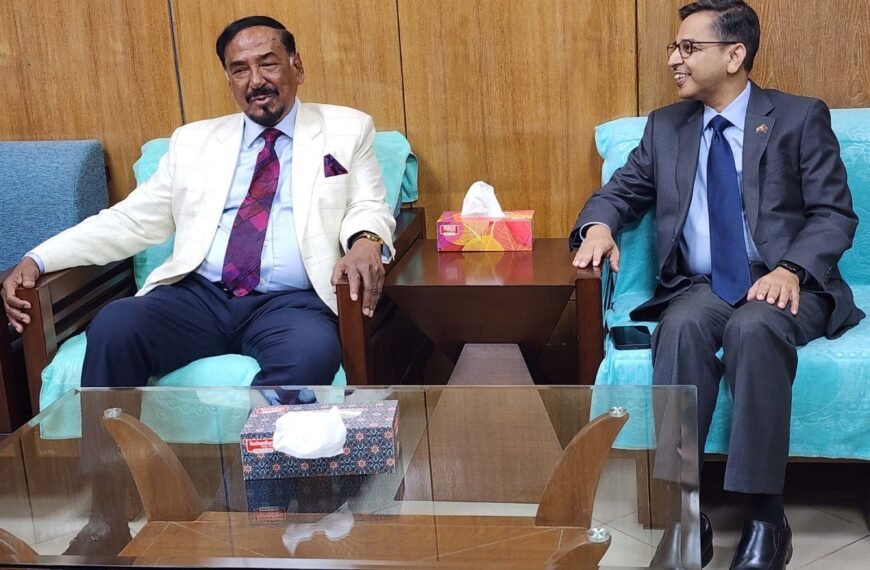The ‘Bangladesh Circular Economy Summit’ was held in Dhaka for the second time with the aim of accelerating the transition from the traditional ‘linear’ model to ‘circular economy’ for the sustainable development of Bangladesh’s garment and textile industry.
On Tuesday 11 June 2024, leaders of the fashion industry, industrialists, representatives of various local and foreign organizations specializing in circularity and high-ranking government officials participated in this day-long conference organized by Bangladesh Apparel Exchange.
Organized in collaboration with the German Development Cooperation Agency ‘GIZ’ at the Radisson Blue Water Garden in Dhaka and with the support of the Embassy of the Netherlands in Bangladesh, the experts participating in four plenary discussions and a ‘break out session’ discussed the opportunities, challenges and possible ways to implement circularity in Bangladesh’s garment and textile industry. expressed his opinion.

Honorable Minister of Textiles and Jute Jahangir Kabir Nanak, MP was present as the chief guest at the opening ceremony of Bangladesh Circular Economy Summit. Md. Siddiqur Rahman, former president of BGMEA, Deputy Head of Mission of Netherlands Embassy in Bangladesh Thijswoudstra, and Deputy Head of Mission of German Embassy in Bangladesh Zanjanowski were present as special guests. Founder and Chief Executive Officer of Bangladesh Apparel Exchange Mostafiz Uddin was also present at the opening ceremony.
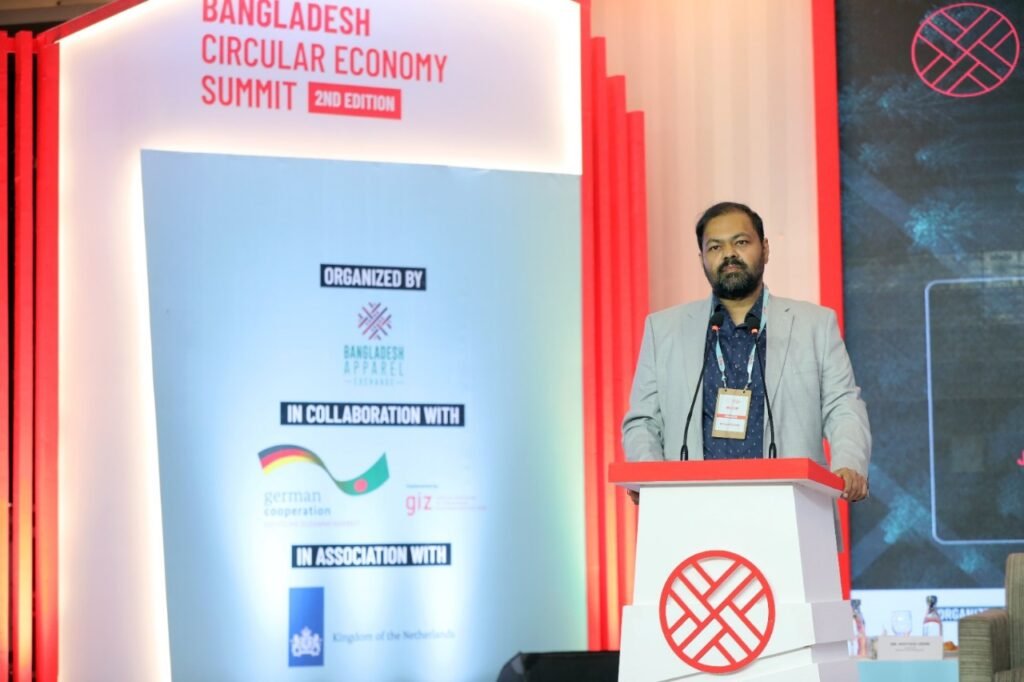
In the speech of the Chief Guest, Hon’ble Textile and Jute Minister Jahangir Kabir Nanak, MP said, “The garment industry of Bangladesh has come a long way in terms of sustainability. The development of our country depends a lot on clothing and textile industry. Our apparel industry has made great strides in safety. Bangladesh’s garment industry is leading the way in responsible business. As we continue to develop the industry, we need to ensure that this development is sustainable. Cooperation among all is key to circularity and development.”
“Our world is one. It is our responsibility to protect it for our future generations. That is why we need to ensure optimal utilization of resources.”
Speaking as a special guest, BGMEA former president Md. Siddiqur Rahman said, “Cooperation between brands and manufacturers is very important for the promotion of circular fashion. We are your partners. I request all brands, please raise your prices a little. Otherwise we will not be able to survive. “
“Bangladesh has come a long way in terms of circularity and sustainability. The progress of our industry has not been smooth. We have overcome every challenge. Our factories maintain the highest standards. Garment entrepreneurs are adopting sustainable practices. There are currently over 200 certified green garment factories in Bangladesh and another 500 The factory is awaiting certification. Bangladesh is moving towards a circular economy by reducing the use of materials and putting more emphasis on circularity. We need the support of developed countries.”
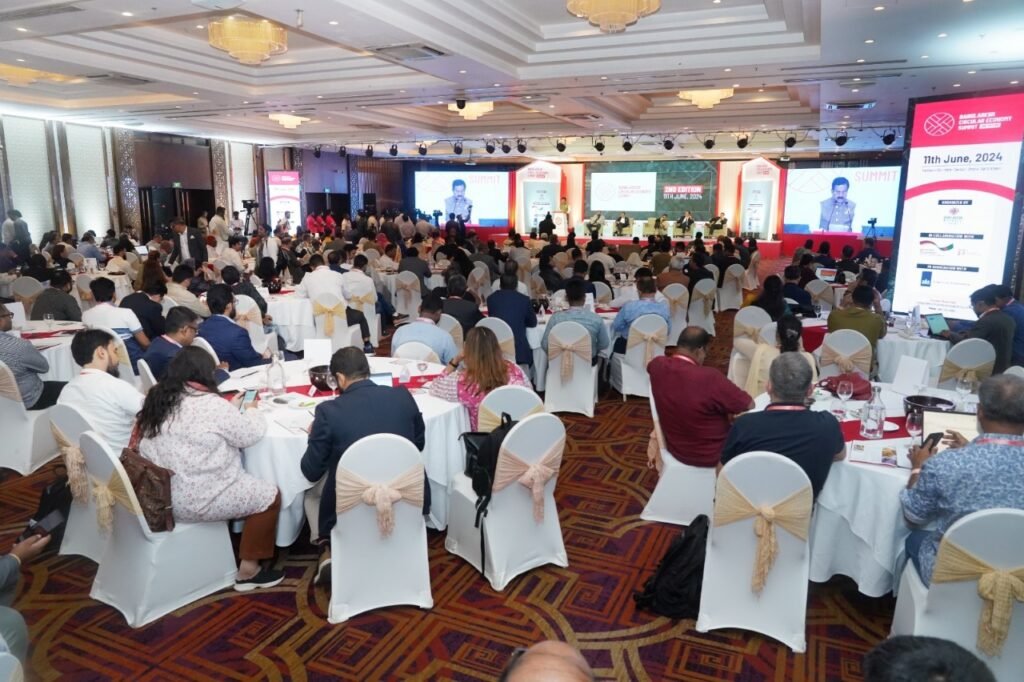
Thijswoudstra, Deputy Head of Mission of the Embassy of the Netherlands in Bangladesh, said, “To take a step towards circularity we need to comprehensively implement ways of bringing transparency across the supply chain. It will ensure the structure and quality of materials. Besides ensuring compliance with various regulations and transparency of environmental aspects, consumer needs can be met.”
“The garment industry in Bangladesh is a promising sector. Working together we can harness the potential of the circular economy.”
Deputy Head of Mission of the German Embassy in Bangladesh Zanjanowski said, “It is time to think about more ambitious reforms in Bangladesh. Of course businesses are often leading as pioneers in various sectors. However, institutions, governments and other stakeholders play a very important role in creating an enabling environment for the implementation of the circular economy. They can provide direction as well as play a role in innovation and investment.”
“Investing in sustainable manufacturing is not only a responsible business decision, but a strategic decision that can strengthen Bangladesh’s position in sustainable manufacturing in global markets including Germany and the European Union.”
“The circular economy helps us tackle one of the world’s biggest challenges. And that is climate change. Many excellent and positive initiatives are being taken in Bangladesh in the field of circularity. In this regard, Bangladesh should focus more on the garment industry. I am very glad that many of you are working on this. I am also pleased that today’s conference has focused on the challenges of circularity.”
Mostafiz Uddin, founder and CEO of Bangladesh Apparel Exchange, said, “In 2016, I wanted to do a study on the percentage of industrial waste for the first time, and it was very difficult to find it in Bangladesh. But now everyone knows the percentage of waste in Bangladesh. And this makes me very proud. Bangladesh’s apparel industry has progressed so far that you can now see we are improving day by day.”


